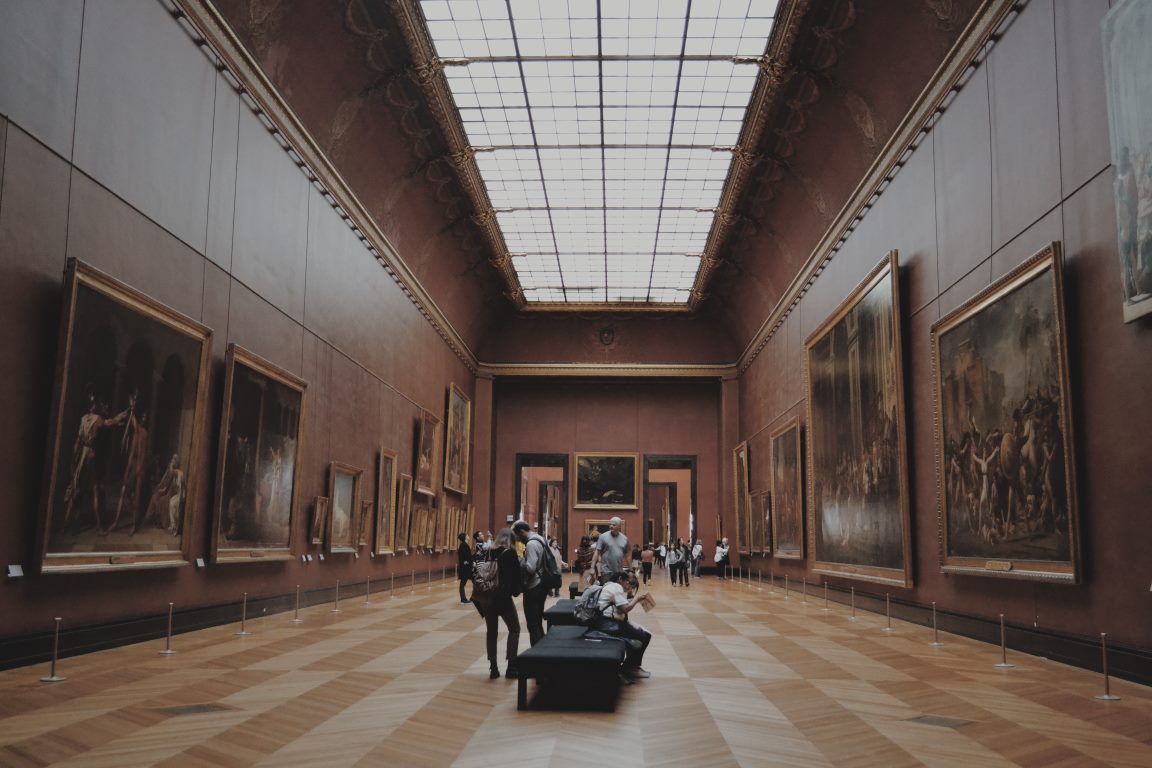How to Plan Your Private Day Tour of Tiananmen Square Forbidden City and Hutong Old Alley in Beijing
If you’re looking for a comprehensive and personalized tour of Beijing’s famous sites, including the Forbidden City, Tiananmen Square, and the Hutongs, a private day tour may be just the thing for you. In this post, we’ll provide you with all the information you need to plan a private day tour of Beijing, including transportation, costs, and what to expect on the tour.Overview
This private day tour is designed to provide you with an in-depth exploration of Beijing’s most famous sites. You’ll be accompanied by a private guide who will meet you at your hotel, and together you’ll travel by public transportation, including the subway or bus. Your tour will include stops at Tiananmen Square, the Forbidden City, and the historic Hutongs. You’ll have the option to rent a rickshaw for a ride through the Hutongs, at an additional cost, and lunch is included in the tour package.What’s Included
When you book the Private Day Tour of Tiananmen Square Forbidden City and Hutong Old Alley, you can expect the following to be included:- Local taxes
- Professional guide
- Hotel pickup and drop-off with public transportation
- Lunch
- Gratuities
- Hutong rickshaw ride
Meeting and Pickup
Your private guide will meet you at your hotel lobby in the morning to begin your tour. As the tour package includes transportation by public transportation, please make sure to be on time at the designated pickup point to avoid any delays.What to Expect
After meeting your private guide at your hotel, you’ll take public transportation to Tiananmen Square, located in the heart of Beijing. Your guide will provide you with information about the site’s history and significance, allowing you to gain a deeper understanding of this landmark location. Next, you’ll head to the Forbidden City, which served as the home of the Chinese emperors for over 500 years. Your guide will take you through the palace complex, showcasing the stunning architecture and artistry of the time period. Along the way, your guide will provide you with historical context, allowing you to understand the site’s cultural significance. Following your exploration of the Forbidden City, you’ll have the option to rent a rickshaw for a ride through the historic Hutongs. These narrow alleyways provide a glimpse into traditional Chinese life and culture, and the rickshaw ride is an excellent opportunity to experience them up close. Finally, your tour will conclude with a traditional Chinese lunch, providing you with a taste of the local cuisine before you return to your hotel.Costs
The Private Day Tour of Tiananmen Square Forbidden City and Hutong Old Alley is available for a per-person cost, which includes all transportation, entrance fees, and lunch. The rickshaw ride through the Hutongs is an additional cost, but it’s well worth it for the experience.Booking
If you’re interested in booking this private day tour, you can do so through Viator at the following link: book the tour here. By booking through Viator, you’ll have the assurance of working with a reputable provider and the convenience of a worry-free booking process.Book Your Tour Now
A private day tour of Tiananmen Square, the Forbidden City, and the Hutongs provides an unparalleled opportunity to experience the best of Beijing. With a knowledgeable private guide and convenient transportation, you’ll be able to explore these sites at your own pace, gaining a deeper understanding of Chinese history and culture along the way. Book your tour today and prepare for an unforgettable day in Beijing.
Frequently Asked Questions about Beijing
If you’re planning a trip to China, chances are you’ll make a stop in Beijing. From the Great Wall of China to the Forbidden City, Beijing offers a rich cultural experience unlike any other. However, if you’re not familiar with the city, you may have some questions. To help you plan your trip, we’ve put together a list of some of the most frequently asked questions about Beijing.1. What is the best time to visit Beijing?
The best time to visit Beijing is during the months of September to early November or from March to May. These months have significantly less rainfall and the temperatures are mild, making it the perfect time to explore the city. Summer is also a popular time to visit, but it can be extremely hot and humid, and the city can be crowded with tourists. Winter can be very cold and dry, so make sure you pack warm clothing if you visit during this time.2. Do I need a visa to visit Beijing?
Yes, as a foreigner, you will need a visa to visit Beijing. You can obtain a tourist visa from your local Chinese Embassy or Consulate. If you’re traveling from certain countries or regions, you may be eligible for a visa-free stay of up to 72 hours.3. What is the best way to get around Beijing?
Beijing has an extensive public transportation system, including buses, subway trains, and taxis. The subway is the most efficient way to get around the city, and it’s relatively inexpensive. Most signs are in English, and tickets can be purchased at the stations. Taxis are also widely available, but make sure you have the address of your destination written in Chinese to avoid any language barriers.4. What should I see while in Beijing?
There are countless attractions and landmarks to see in Beijing, but some of the must-see sights include:- The Great Wall of China
- The Forbidden City
- The Temple of Heaven
- The Summer Palace
- The National Museum of China
- The Olympic Park
5. What is the local currency in Beijing?
The local currency in Beijing is the Chinese Yuan (CNY). You can exchange your currency at banks, airports, or designated currency exchange kiosks. ATMs are also widely available in the city, but make sure you notify your bank of your travel plans before you leave to avoid any issues.6. Is it safe to drink tap water in Beijing?
No, it’s not safe to drink tap water in Beijing. It’s best to drink bottled water, which is widely available in most stores and hotels. You should also avoid using tap water when brushing your teeth.7. What is the local language in Beijing?
The local language in Beijing is Mandarin Chinese. While many people in the city speak English, it’s a good idea to learn some basic Chinese phrases to make your trip easier. The most commonly used phrases include:- Hello – Nǐ hǎo
- Thank you – Xièxiè
- How much? – Duōshǎo?
- Goodbye – Zàijiàn
8. What is the food like in Beijing?
Beijing is known for its delicious cuisine, including Peking duck, dumplings, and spicy hotpot. Street food is also popular in the city, but make sure you only eat from vendors with clean and well-maintained stalls. Many restaurants have menus in English, but it’s a good idea to have a translation app or phrase book on hand just in case.9. What is the tipping etiquette in Beijing?
Tipping is not expected in Beijing, but it’s becoming more common in high-end restaurants and hotels. If you’re unsure whether or not to tip, it’s always polite to ask your server.10. What is the climate like in Beijing?
Beijing has a continental monsoon climate, with hot and humid summers and cold and dry winters. The average temperature in the summer is around 30°C (86°F), while in the winter, it can drop below -10°C (14°F). Make sure you check the weather forecast before you pack to make sure you’re prepared for the temperature.11. Are there any cultural customs I should be aware of?
Yes, there are a few cultural customs you should be aware of when visiting Beijing. Bowing is not required, but it’s polite to greet people with a nod or a slight bow. When entering a temple or other sacred site, it’s important to dress modestly and remove your shoes. Additionally, it’s considered impolite to eat or drink while walking down the street, so make sure you finish your snack before you start walking.12. What is the best way to stay connected to the internet while in Beijing?
Most hotels and cafes in Beijing offer free Wi-Fi, but if you need to have constant access to the internet, purchasing a local SIM card is a good option. You can buy a SIM card from most convenience stores, but make sure you have your passport with you as it’s required to register the SIM card.13. Is bargaining common in Beijing?
Yes, bargaining is common in Beijing, especially in street markets and small shops. Keep in mind that the initial price quoted may be higher than the final price, so don’t be afraid to negotiate. It’s important to remain polite and respectful during bargaining and to know when to walk away if the price is too high.14. What is the nightlife like in Beijing?
Beijing has a diverse nightlife scene, with everything from rooftop bars to underground clubs. The Sanlitun area is known for its Western-style bars and clubs, while the Houhai area has a more laid-back atmosphere with traditional Chinese music and teahouses. Make sure you’re dressed appropriately for the venue you’re visiting, as dress codes can vary widely.15. How do I call a taxi in Beijing?
In Beijing, you can call a taxi by using a ride-hailing app like Didi Chuxing or by hailing a taxi on the street. Taxis in Beijing are metered, and most drivers prefer cash payment. Make sure you have the address of your destination written in Chinese to avoid any language barriers.Book Your Tour Now
With its rich history, fascinating culture, and delicious cuisine, Beijing is an incredible destination for any traveler. By understanding some of the basics about the city, you can make the most of your trip and experience everything this amazing city has to offer.
How to Spend Your Time as a Tourist in Beijing
Beijing is the capital of China and one of the most popular tourist destinations in the world. This bustling city is filled with ancient and modern sights, unique culture, and delicious food. If you’re planning a trip to Beijing, here are some tips to make the most of your time there.1. Visit the Great Wall of China
The Great Wall of China is one of the most iconic sights in the world and is a must-see when visiting Beijing. There are multiple sections of the wall to choose from, but the most popular ones are Badaling and Mutianyu. Badaling is the most restored section and can get very crowded, while Mutianyu is less crowded and offers stunning views.How to Get to the Great Wall of China
You can take a public bus or hired car from Beijing to the Great Wall. The journey takes around 2 hours each way. Alternatively, you can take a day tour from Beijing which includes transportation and a knowledgeable guide.2. Explore the Forbidden City
The Forbidden City is a palace complex that was the home of the emperors of China for almost 500 years. It is now a museum that showcases Chinese history and culture. The architecture and design of the palace are breathtaking and well worth a visit.How to Get to the Forbidden City
The Forbidden City is located in the heart of Beijing and can be reached by public transportation. You can take subway Line 1 and get off at Tiananmen East or Tiananmen West station. Alternatively, you can take a taxi or hire a car.3. Sample the Local Cuisine
Beijing is famous for its delicious food, and there are many excellent restaurants and street vendors to choose from. Some of the must-try dishes include Peking duck, jianbing (a Chinese breakfast crepe), and zhajiangmian (noodles with soybean sauce).Where to Eat in Beijing
Some popular foodie spots in Beijing include Wangfujing Snack Street, Guijie Street, and Hepingli Food Street. If you’re looking for a higher-end dining experience, try Quanjude or Da Dong for Peking duck.4. Visit Tiananmen Square
Tiananmen Square is the largest city square in the world and is an important landmark in Chinese history. It is surrounded by important buildings such as the Forbidden City, the Great Hall of the People, and the National Museum of China.How to Get to Tiananmen Square
Tiananmen Square is located in the center of Beijing and can be easily reached by public transportation. Take subway Line 1 and get off at Tiananmen East or Tiananmen West station.5. Wander Around the Hutongs
The hutongs are the traditional alleys and narrow streets that are unique to Beijing. Many of them date back to the Ming and Qing dynasties and provide insight into traditional Beijing life. Walking around the hutongs is a great way to experience local culture and see how people live in the city.Where to Find the Hutongs
The best hutongs to explore are in the Gulou and Nanluoguxiang areas. You can also take a rickshaw tour to see more of the hutongs.6. See the Summer Palace
The Summer Palace is a beautiful park and palace complex that served as the summer retreat for the emperors of China. It is filled with gardens, pavilions, and lakes and is a peaceful escape from the hustle and bustle of the city.How to Get to the Summer Palace
You can take subway Line 4 and get off at Beigongmen station, or take a taxi or bus from the city center.7. Marvel at the Temple of Heaven
The Temple of Heaven is a unique temple complex that was used by the emperors for annual ceremonies to pray for a good harvest. The complex is filled with beautiful buildings, gardens, and temples, and is a popular spot for photography.How to Get to the Temple of Heaven
You can take subway Line 5 and get off at Tiantan Dongmen station, or take a taxi or bus from the city center.In Book Your Tour Now
Beijing is a vibrant city with something for everyone. From ancient landmarks to modern attractions, delicious cuisine to traditional culture, Beijing has it all. Use these tips to make the most of your time in this vibrant city and create memories that will last a lifetime.Table of Contents

